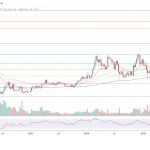Justin Bons, the founder and Chief Investment Officer (CIO) of Cyber Capital, has raised alarming accusations against Cardano, a major blockchain and smart contracts platform. Bons has brought to light serious concerns about Cardano’s level of centralization, causing uncertainty among ADA holders.
Questioning Cardano’s Decentralization
Bons detailed his centralization claims against Cardano in a post on X (formerly Twitter). He highlighted the existence of “Genesis Keys” within the Cardano blockchain, which could potentially be utilized to manipulate and control the blockchain, contradicting Cardano’s assertions of decentralization.

According to Bons, these Genesis Keys form part of a multi-signature system that dictates Cardano’s network rules and protocols. If a group gains control of these keys, they can wield significant authority over Cardano.
Furthermore, Bons accused Input Output Global (IOG), the tech firm behind Cardano, of possessing 5 out of the 7 Genesis Keys. This means that IOG currently holds a majority share of control over the blockchain, allowing them to make unilateral changes without community consensus.
He expressed his shock at the centralized control IOG possesses over Cardano, emphasizing the potential implications of such authority.
Initially introduced during Cardano’s Shelly mainnet upgrade in 2020, the Genesis Keys were aimed at distributing control among key entities like IOG, Emurgo, and the Cardano Foundation to prevent centralized dominance. However, a shift in power occurred when the Cardano Foundation delegated its control to IOG, consolidating control within a single entity.
Community Empowerment in Cardano Governance
In response to Bons’ concerns, Jaromir Tesar, a Cardano Delegate Representative (DRep), assured the community about future governance changes. Tesar revealed plans to transfer Cardano’s governance to the community, altering the network’s power dynamics significantly.
After this shift, Genesis Keys will lose their function, and roles held by IOG, Cardano Foundation, and Emurgo will be assumed by DReps, reducing centralization within the network. Any ADA holder can become a DRep, gaining influence over Cardano’s governance and ensuring it is not restricted to a select few.
Tesar outlined a governance framework involving DReps, the Constitution Committee, and Stake Pool Operators (SPO) who will collectively decide on Cardano’s network governance.

